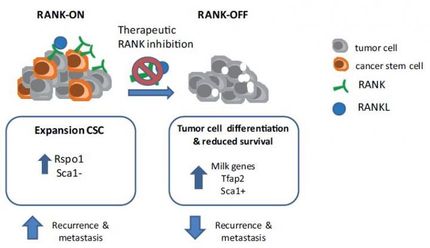Lorus Therapeutics announces the allowance of a United States patent to protect novel anticancer agents
Advertisement
Lorus Therapeutics Inc. announced that its wholly owned subsidiary, GeneSense Technologies Inc., has been allowed a patent from the United States Patent and Trademark Office for antisense oligonucleotides directed towards the novel cancer target neuropilin, and provided an update on a financing agreement.
The patent, titled "Neuropilin antisense oligonucleotide sequences and methods of using same to modulate cell growth", protects a series of antisense molecules that specifically bind to and decrease neuropilin target RNA in cells. The patent also protects the use of these antisense agents in the treatment of various forms of human cancer, including lung, colon, prostate, and breast cancers.
Included in the patent is Lorus' lead neuropilin antisense drug GTI-3611. In preclinical studies, GTI-3611 significantly inhibited growth of several cancer types, and markedly reduced the number of lung tumors in a mouse model of metastatic human melanoma. Consistent with an antisense mechanism of action, high levels of neuropilin coding RNA found in cancer cells were substantially decreased following treatment with GTI-3611, as well as with other neuropilin antisense oligonucleotides listed in the patent.
Neuropilin is a coreceptor for a form of vascular endothelial growth factor (VEGF), which is a soluble protein that stimulates tumor growth and angiogenesis (growth of blood vessels, which support tumor growth). Neuropilin is expressed on tumor blood vessel cells as well as by multiple cancer types, including breast cancer, prostate cancer, lung cancer, and melanoma. This expression increases the binding of VEGF to tumor cells and has been shown to promote cancer cell growth and tumor progression.
Most read news
Other news from the department research and development

Get the life science industry in your inbox
By submitting this form you agree that LUMITOS AG will send you the newsletter(s) selected above by email. Your data will not be passed on to third parties. Your data will be stored and processed in accordance with our data protection regulations. LUMITOS may contact you by email for the purpose of advertising or market and opinion surveys. You can revoke your consent at any time without giving reasons to LUMITOS AG, Ernst-Augustin-Str. 2, 12489 Berlin, Germany or by e-mail at revoke@lumitos.com with effect for the future. In addition, each email contains a link to unsubscribe from the corresponding newsletter.


























































